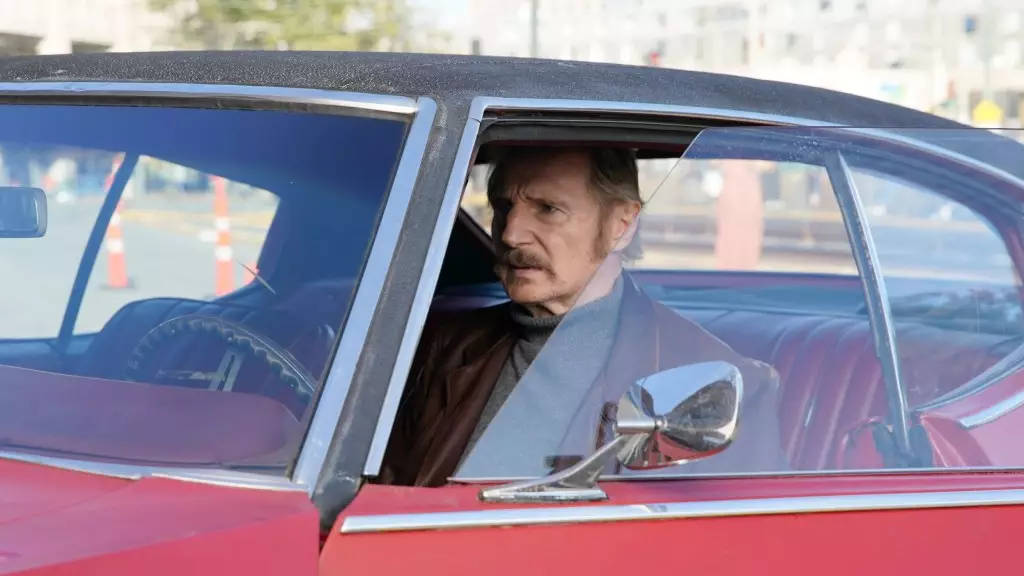In the realm of modern cinema, few actors can command the screen quite like Liam Neeson. With his signature gravitas and emotional depth, Neeson often captivates audiences. However, his latest endeavor, “Absolution,” seems to falter in establishing a unique narrative voice, instead relying heavily on overused tropes found in the crime thriller genre. The film, directed by Hans Petter Moland and penned by Tony Gayton, seeks to tackle themes of redemption, familial estrangement, and moral corruption, yet, tragically, it often feels like an uninspired amalgamation of clichés.
“Absolution” follows an aging gangster, fittingly named Thug (played by Neeson), who grapples with the realizations of impending mortality after a terminal diagnosis. This narrative arc is a well-worn path frequently traversed in film, leading one to wonder whether the story adds anything fresh to the genre. As Thug seeks to reconcile with his estranged daughter, Daisy (portrayed by Frankie Shaw), the film’s framework may evoke a sense of déjà vu for viewers familiar with similar redemption arcs. The effort to show a character’s growth through personal connections feels half-baked, particularly as the film aligns itself with the increasingly strained relationship between fathers and daughters—a motif that itself could benefit from new perspectives.
The portrayal of Daisy as a single mother working as a stripper to support her children further exacerbates this issue. While such characterizations can bring depth, they often become mere plot devices—not fully explored or nuanced. The film’s treatment of secondary characters, including those representing marginalized identities, suggests a missed opportunity to inject vitality and authenticity into these narratives. For instance, Daisy’s precarious financial situation and the challenges she faces as a working-class individual feel more like templates than truths, while her eventual reconciliation with Thug is disappointingly shallow.
Critically, one aspect of “Absolution” is its halfhearted engagement with sensitive themes such as masculinity and sexuality. Thug’s realization of his son’s struggles with addiction and subsequent death is a significant emotional moment. However, the character’s acknowledgment of his son being gay is dealt with too lightly, revealing a lack of depth in exploring familial acceptance and the toxic effects of traditional masculinity. The conversation is quickly overshadowed and never revisited, leaving audiences wanting more substance in an exploration that could humanize Thug’s character and challenge the macho archetype.
Furthermore, the film sensationalizes subplots like human trafficking without giving them the weight they deserve. Thug’s inadvertent involvement in such pressing social issues seems rushed and lacks the necessary gravitas that would elevate the narrative. When he attempts to rescue a female character exploited within this context, her backstory is skimmed over, relegating her to a mere plot device rather than a fully-fledged human being. This underwhelming treatment exposes a broader issue within “Absolution” regarding its overall character development and thematic execution.
Despite a 122-minute runtime, “Absolution” struggles to merge its multitude of subplots and themes into a coherent narrative. The film oscillates awkwardly between moments of potential intrigue and uninspired sequences, with several action scenes falling flat. A stand-out shootout, which occurs in broad daylight with no attention drawn from nearby skyscrapers, epitomizes the implausibility and lack of tension that permeates the film.
While “Absolution” does bask in the aesthetic charm of Boston, leveraging its picturesque locations, these cinematic flourishes alone are insufficient to elevate the film from mediocrity. The visuals may impress, but the vacuity of the story leaves viewers yearning for something more meaningful, as the film becomes mired in its own lack of focus and emotional authenticity.
“Absolution” does feature commendable performances from its ensemble cast, including a notably underutilized Ron Perlman. However, the film ultimately succumbs to its reliance on tired tropes and fails to navigate its ambitious themes with the depth they deserve. This critique serves as a clarion call for filmmakers—not just to reinvent narratives, but also to embed a sense of humanity and authenticity within their characters. In a landscape rife with potential for rich storytelling, audiences deserve more than a run-of-the-mill redemption tale; they deserve cinematic experiences that resonate on a profound level.

